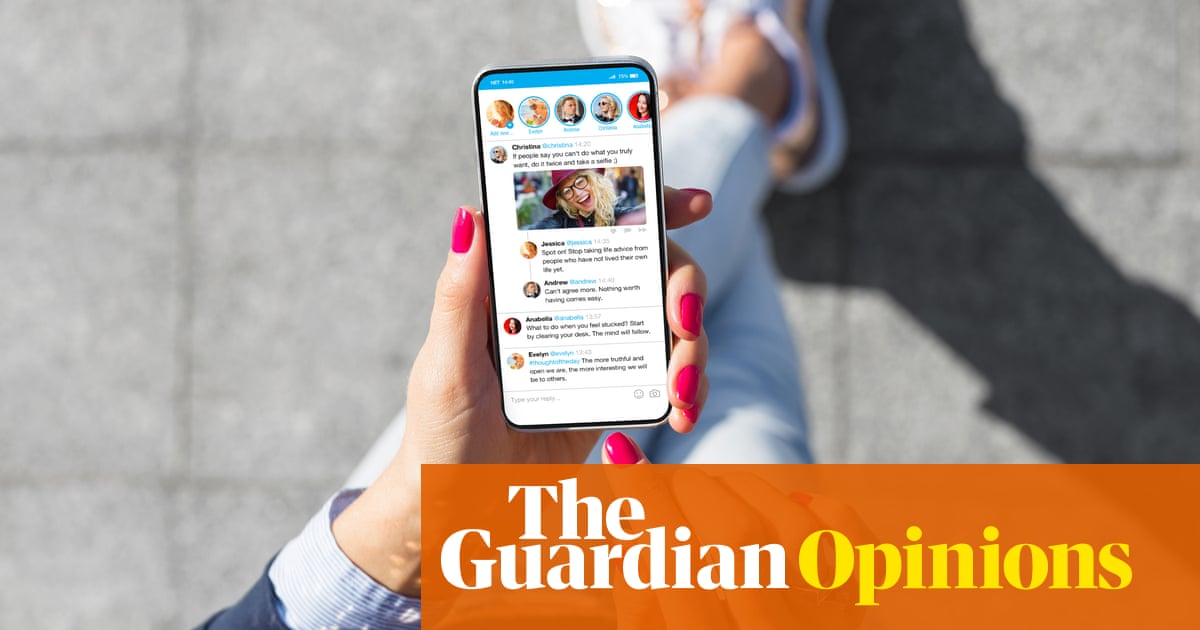Authenticity is the great mirage of the modern age. Its promise – to live unmediated, in full accordance with our values and beliefs – feels like the ideal we’re always reaching for before it vanishes beyond the horizon. And ironically, the more we try to prove we’re authentic online, the more we seem to accelerate its disappearance.
As Generations Z and Alpha joined social media, they responded to the cultural demand for perfection with chaos – raw, unfiltered, deliberately messy content. The curated feed of flatlays gave way to the sloppy photo dump; the finstas; the bedrotting. Finally, our real lives represented on screen. Finally, something real.
Except that this quickly became another role to be performed, a generation-defining content genre that has itself become subject to more and more extreme performances – filming oneself balling into the camera, extreme overshares, breakdowns in public. Vulnerability-as-aesthetic, where what began as a rejection of perfection has become its own form of perfectionism – the flawless execution of being flawed.
To understand why authenticity is impossible, first we need to understand what social media has done to us. It’s turned personal identity into performance art – and in doing so, has transformed us all into brands (I should know, I’m a brand consultant).
The modern experience is one of constantly being perceived.We view ourselves in the third person, as an entity to be managed. How will this action make me look? How can my lived experience be something I can capture?
This isn’t limited to chronic social media users. Panoptic surveillance, whether state or private, makes us intensely conscious that every public action is potentially recorded, screenshotted and data-harvested. All the world’s a stage – and we’re all method actors who never break character.
Authenticity simply can’t survive this environment of constant performance – we become alienated from our own actions when every moment is filtered through the question of how it will be received.Social mediaaccelerates this process of negation.
Ever-attuned to the unmet desires of our society, the marketing world has itself been through several iterations of packaging and selling authenticity over the past 15 years. Post the great financial crisis, our efforts to be “real and relatable” saw us shrugging off polished corporate messaging to ape the awkward-earnest tone of millennial-era entertainment such as Garden State or Girls. Brands such as Airbnb championed a Simon Sinek-personified approach – driven by a deeper purpose and appealing to a common underlying humanity.
Like many aspects of millennial culture, this authenticityhas now been sufficiently roasted for its naive and cloying self-importance,but replaced by something arguably worse.
Today’s brand “authenticity” means co-opting the gen Z performance of being “raw and unfiltered”. Go into any viralTikTokvideo and observe this peculiar modern dystopia: a legion of brands colonising the comment section, all speaking to one another in the same sardonic, self-aware, fourth-wall breaking, chronically online tone. The irony is, of course, that there is nothing less authentic than multinationals with billions of dollars in market capitalisation pretending to be jaded teenagers, yet here we are.
If we want authenticity, we’ll need to unwind our culture of surveillance – to create spaces where actions aren’t immediately documented, dissected and distributed. But that feels like trying to uninvent the printing press. The infrastructure of observation has become so fundamental to how we live and work that opting out more or less means retreating from modern society altogether.
So what we actually need, especially for our youth, is an unmaking of expectation – the suffocating demand that they ruthlessly optimise and curate every element of their lives for public presentation just to access a fraction of the economic prosperity their parents enjoyed. Because we’ve created a world where turning yourself into a brand isn’t a lifestyle choice but a survival strategy, particularly as AI puts a blowtorch to the remaining areas of knowledge work that once promised middle-class security.
The internet has fundamentally altered the conditions under which genuine self-expression can exist. The solution isn’t to perform authenticity harder, but to recognise and jealously guard the remaining places where real authenticity might still be possible: in unrecorded conversations, in private moments, in closed networks that haven’t yet been colonised by the attention economy.
Ironically, admitting we can’t be authentic online might be the closest thing to honesty we have left.
Eugene Healey is a brand strategy consultant, educator and creator
